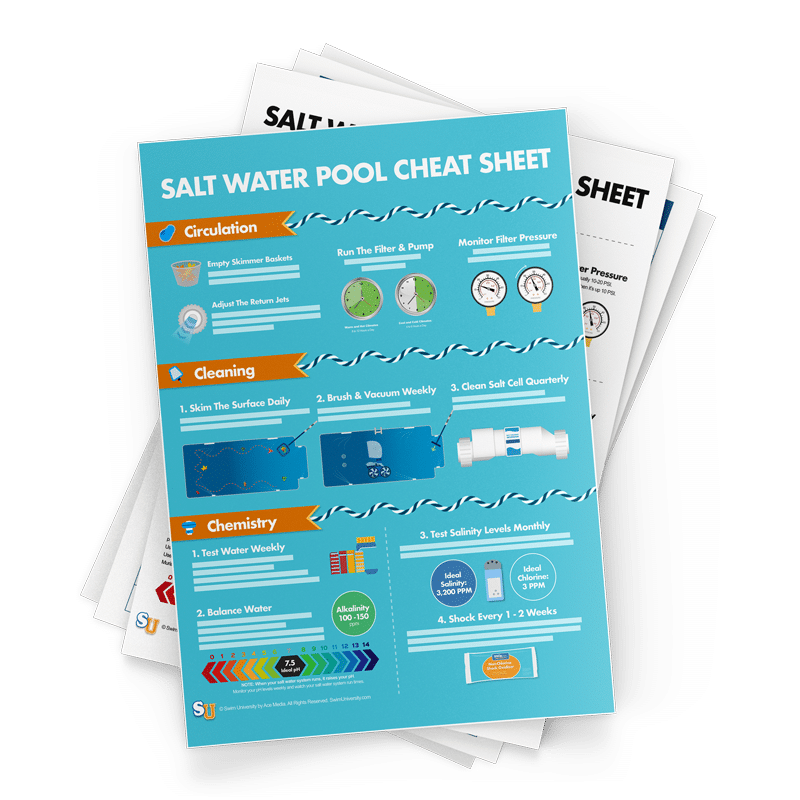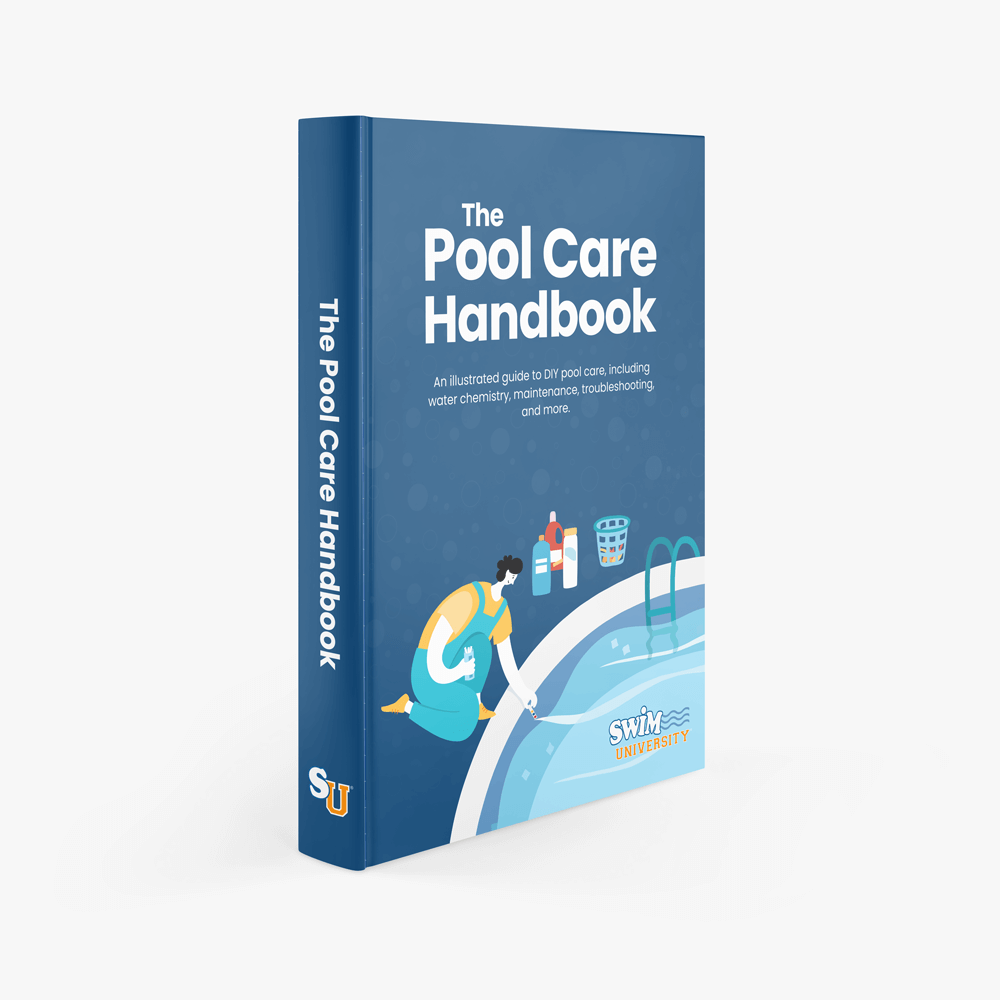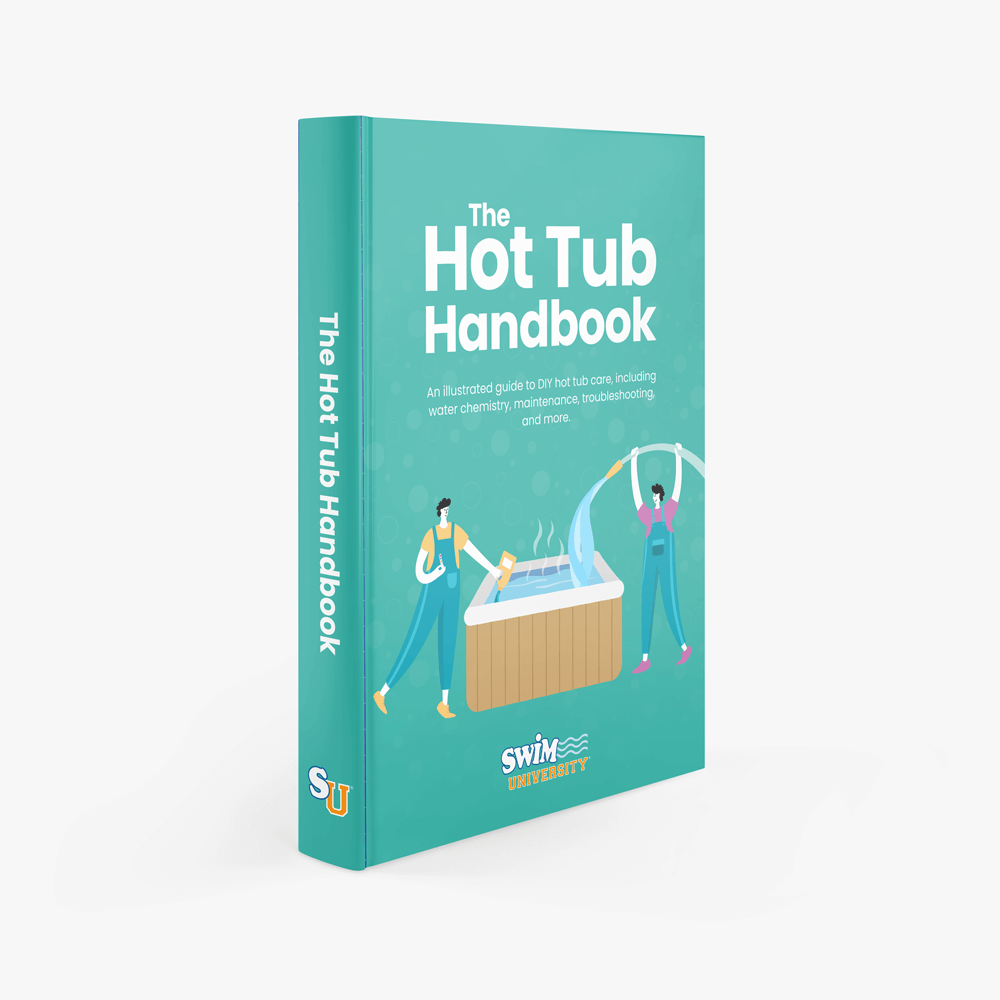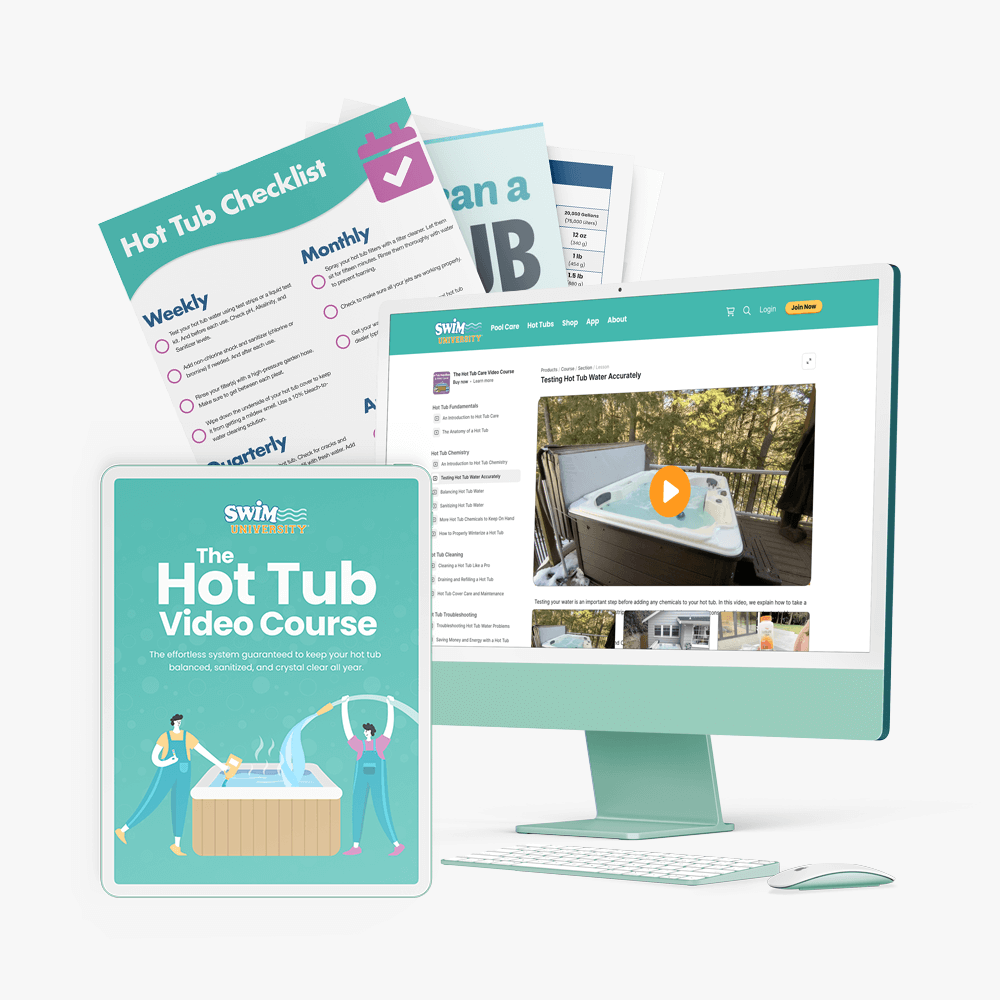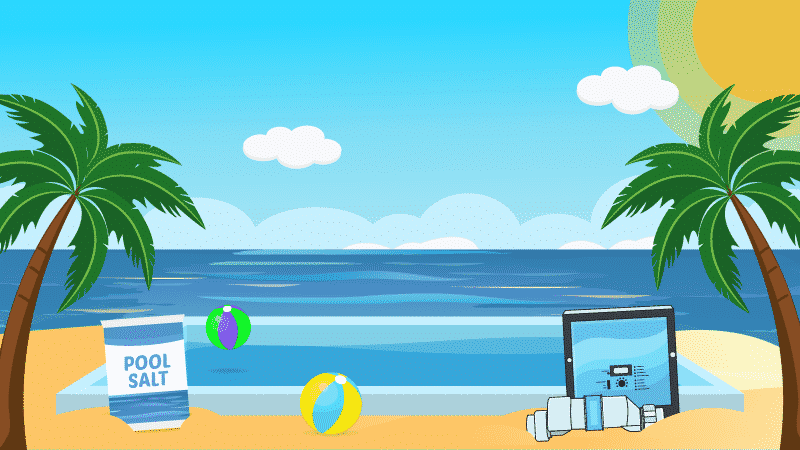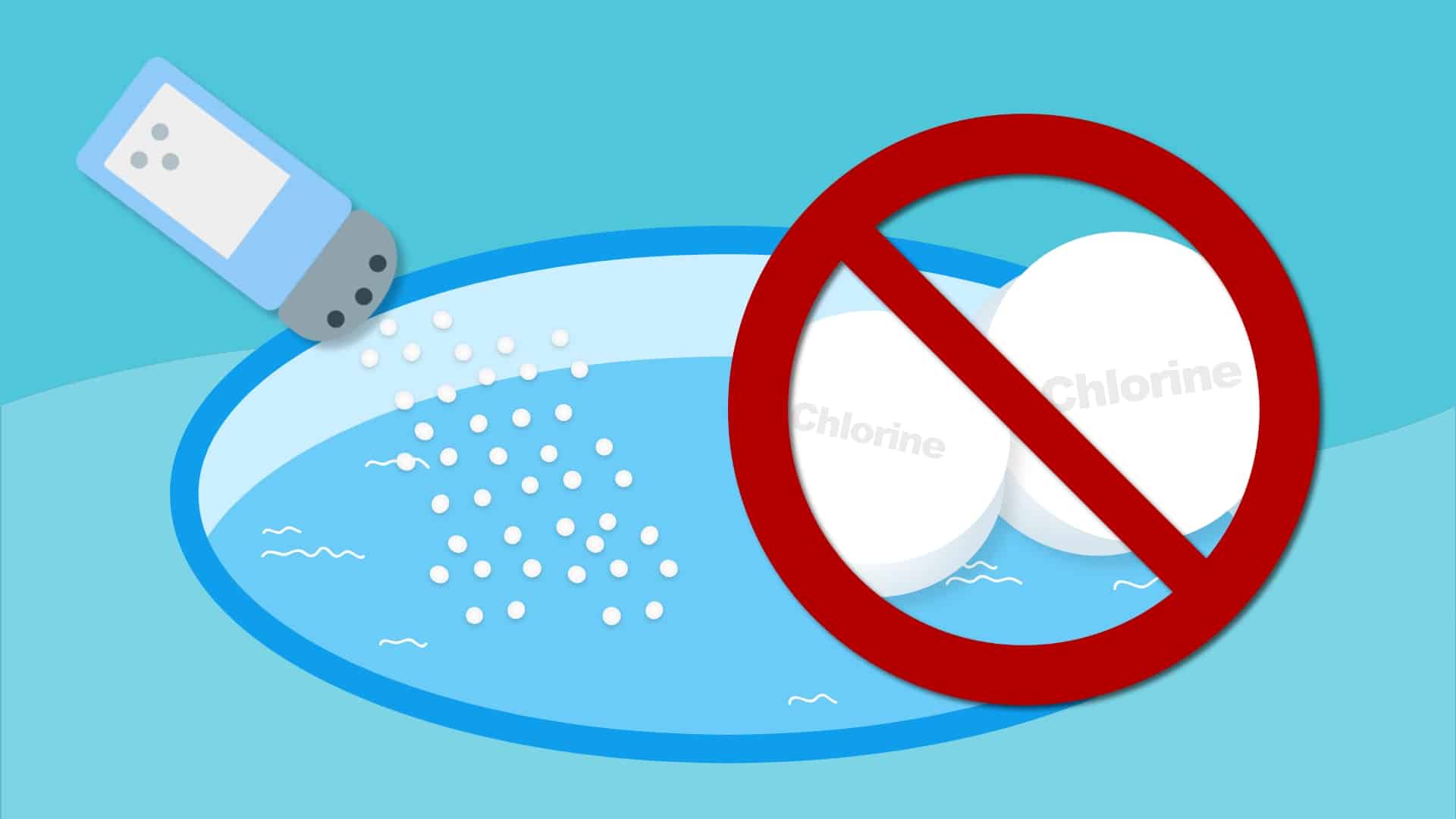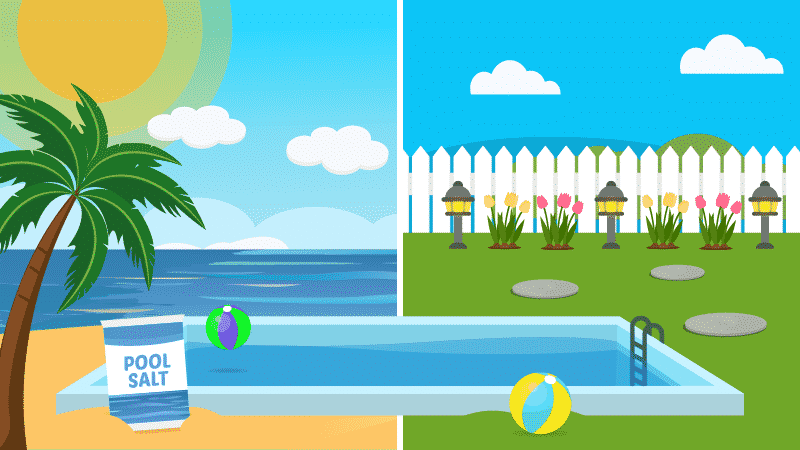The Best Pool Salt You Should Use and Why
If you’ve joined the millions of homeowners who have built or switched to salt water pools, you know the benefits you’re getting. Softer hair and skin, clear, non-itchy eyes, and a smaller pool chemical bill.
But before you head to your local grocery store to buy a pallet of table salt, you may want to learn a little about pool salt, what it does, and what type to use in your pool.
What is Pool Salt?
Well, we could get into a big discussion about chemicals and throw some formulae at you, but nah. Who has time for that? The simple answer is, pool salt is, well, salt. It is technically and chemically the same salt you buy to sprinkle on your fries and watermelon. What, you’ve never had salt on watermelon? Trust us—it’s delicious.
But the salt you buy to use in your pool is called pool salt for two main reasons: it’s a coarser grind that works better in chlorine and bromine generators, and you can buy it in bulk, which will save you some money. Imagine standing by your pool all day, pouring canister after canister of kitchen salt into your pool. Not too fun, right?
Professional Pool Salt crystallizes early to match the fastest dissolve rates on the market - no more waiting for hours for chlorine tablets to dissolve and produce beautiful clean water.
What the Heck is Pool Salt Used For?
If you’re totally new to salt water pools, you may be wondering what the salt’s role is. Sure, you could just be building a tropical paradise in your back yard. But it’s actually there to sanitize the water.
But the salt alone doesn’t do this. You need a salt water chlorinator (or brominator, if you prefer bromine to chlorine) to keep your water clean.
Remember, salt is sodium chloride. The chlorinator uses a process called electrolysis to separate the chlorine from the sodium so it can be available to sanitize the water.
This salt water generator (or salt water chlorinator) has a high/low salt and temperature indicators to help protect your equipment. And the self-cleaning salt cell makes regular maintenance easy. Check out their models for both inground and above ground pools.
The Three Types of Pool Salt
We know a ton of salt varieties is available out there. Kosher salt, Himalayan salt, epsom salt. The list goes on. But you should really only be using one of three types of salt in your pool.
The difference between the kinds of pool salt you can buy don’t really have anything to do with the salt itself. All three types are salt. Period. It has to do with how they’re acquired and produced, which can have an effect on the price and effectiveness.
Solar Salt
Unfortunately, this is not salt that has rained down upon us from the heavens, or that is used to power spacecraft. You’re thinking of dilithium crystals used in warp drives. But that’s another story.
Solar salt is so named because it’s the sun that helps produce it. Seawater is placed in an open holding area where it’s constantly exposed to the sun and wind. As the seawater begins to evaporate, it leaves behind salt. This is one of the less expensive ways to produce salt because it relies on nature to do the work.
The downside is, seawater contains a lot of bacteria that can not only survive but thrive in salty conditions. It also has millions of teeny tiny brine shrimp in it. Despite their size, they’re still an impurity in the salt remaining from the evaporated seawater. And the more water that evaporates, the more the brine shrimp thrive in the salty environment.
Sadly, as the evaporation process continues, the salt level becomes so high that it kills all the little brine shrimp. So now instead of just shrimp in your pool salt, you have millions of tiny shrimp carcasses. We’re not quite sure one is really better than the other.
The good news is, the high-salt environment eventually kills the bacteria as well. But now you have even more organic impurities in your pool salt.
The reasons you use sanitizer and have a pool filter are to kill and remove these very types of contaminants. So it doesn’t really make sense to add them and force your chlorinator and filter to work even harder than usual, does it?
Verdict: Solar salt isn’t the best option.
By the way, brine shrimp are also called fairy shrimp which also kinda makes you want to keep them. And a lot of people did.
Mechanically Evaporated Salt
Do you have a mental picture of tiny robots moving salt molecules around? Just us? OK, then. It’s a good thing because that’s not what mechanically evaporated means at all.
This process is similar to the one that creates solar salt, only it uses artificially generated heat instead of the sun. Because the level of heat can be controlled, and thereby increased, it kills off the brine shrimp and bacteria at a faster rate, and rids the water of other organic impurities as well.
The bad news is, it still leaves some impurities in the pool salt, mainly in the form of minerals, including:
- Magnesium
- Calcium (which could have an effect on the calcium hardness in your pool)
- Copper (which can stain your pool unless you use a metal sequestrant)
- Iron (ditto what copper does)
- Nitrates
- Silicates
- Phosphates (though we don’t count pool phosphates as something to get rid of)
The type and number of minerals that remain after mechanical evaporation depend on where the water came from. While they don’t have the gross-out factor of bacteria and dead shrimp, they can still wreak havoc with your ability to keep your water chemically balanced.
In addition, some minerals like calcium can also have a negative effect on your pool, chlorinator, and other equipment. So again, your filter will have to work overtime to clean the water, and you’ll have to clean your filter more often.
Verdict: Mechanically evaporated pool salt can be OK. But it’s probably going to make more work for you.
Mined Salt
This is exactly what it sounds like—salt that comes from mines. This is where rock salt comes from, like cloudy diamonds pulled from the earth. In the United States, rock salt is the most common type we use, for everything from dining tables, to icy roads, to swimming pools.
Rock salt is the purest type of pool salt you can buy, ranging from 95% to 99% sodium chloride.
Verdict: We have a winner! The good thing is, you won’t have to worry about which type of salt you’re using if you buy bags of pool salt. It’s most likely extracted from mines, and is the purest you’ll find for your pool.
It’s OK to Be Salty
Hey, we’re the last ones who’re gonna tell you to tone down the saltiness. We kinda like it like that around here. But seriously, when it comes to your pool, salty is the way to go.
Just be sure to buy salt that’s labeled “pool salt” so you know it’s pure, the right size for your chlorinator, and the easier, less expensive option.
Happy Swimming!
4 Ways We Can Help With Your Pool
- Pool Care Cheat Sheets (Free): Easy-to-use downloadable guides to help you keep track of taking care of your pool this year.
- The Pool Care Handbook: An illustrated guide to DIY pool care, including water chemistry, maintenance, troubleshooting, and more.
- The Pool Care Video Course: You’ll get 30+ step-by-step videos and a downloadable guide with everything you need to know about pool maintenance.
- The Pool Care App: Enter your water test results. Get a custom treatment plan. Know exactly what chemicals to add to keep your pool clear.
